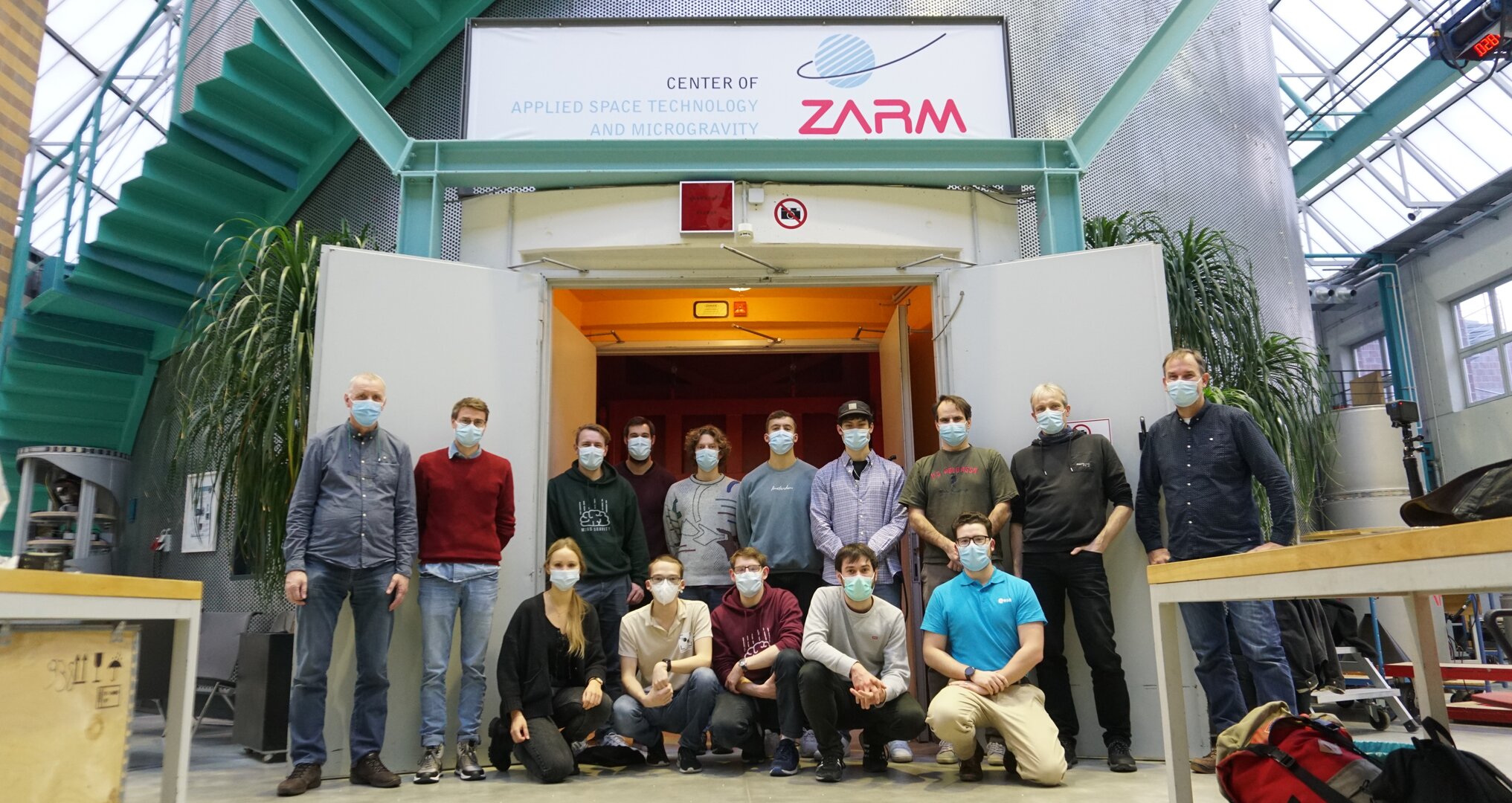Smart minds dropped their experiments
In brief
Last week, the 2021 Drop Your Thesis! programme concluded for the “SmartDust” and “Mind Gravity” teams from the universities of Magdeburg and Bonn in Germany.
In-depth
Both student teams had a trouble-free integration week due to good project management before they arrived at the imposing 147-meter tall ZARM Drop Tower in Bremen.
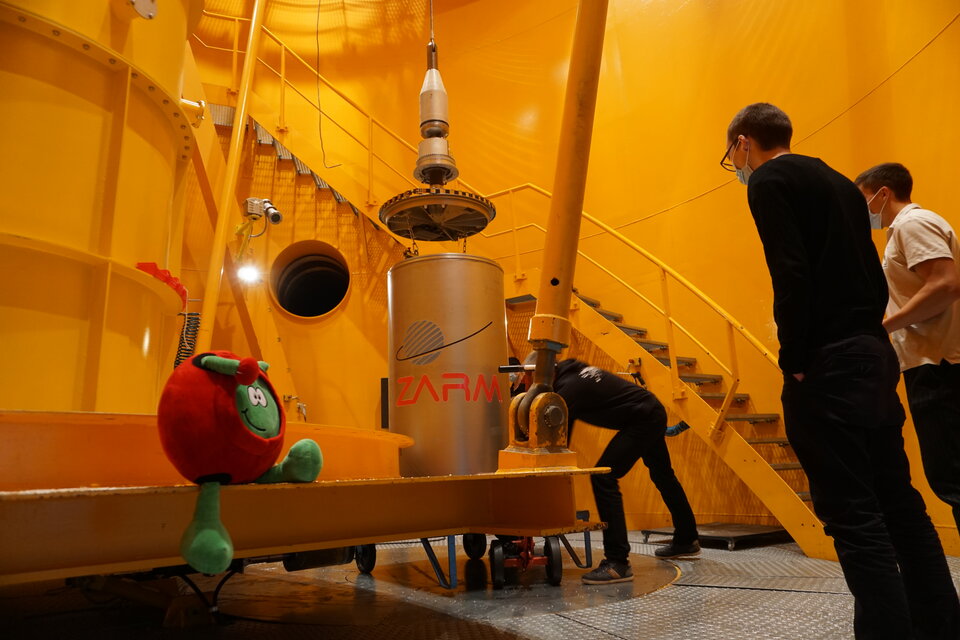
When dropped from the top of this tower, the experiments are exposed to high quality weightlessness with accelerations lower than 10-6g. This can be compared to if not better than the microgravity levels in the International Space Station (ISS). The downside compared to flying a payload to the ISS is the ‘flight’ time. It takes only 4 seconds for the capsule to fall inside the vacuum tube to the ground level into the deceleration pit.
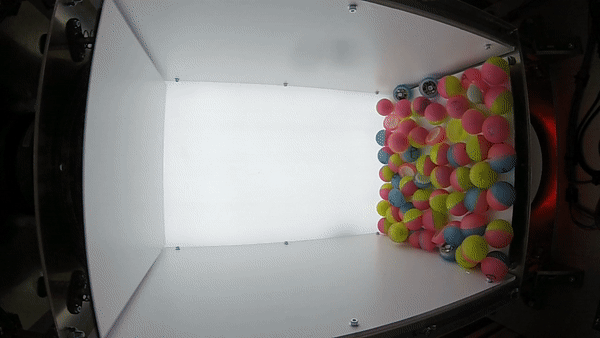
The SmartDust team is looking at the collision interactions between particles in microgravity. With their results they hope to gain more insight into the way granular gasses behave. Granular materials are everywhere, from sand to sugar and salt. When given space these particles are not in permanent contact with each other. Their interaction is driven by random inelastic collisions. This causes dissimilarities between molecular and granular gasses.
The novelty of the four physics bachelor students’ experiment is that they are using MetaMotionCapture (MMC) chips in addition to video recordings. They make ‘smart’ particles, hence the team’s name, that can capture the particles’ acceleration and rotation. This ensures proper tracking of the particles path, attitude, and collisions. The team got assigned engineers from ZARM who help them with the integration of their experiment “The ZARM engineers were reliable and easy to work with.” Even though the first week went smoothly the teams found out that the drop week is more intense “The second week is much harder than the first week. Luckily, the hours melt away even when its 10 or 12 hours in a day,” a SmartDust team member said.
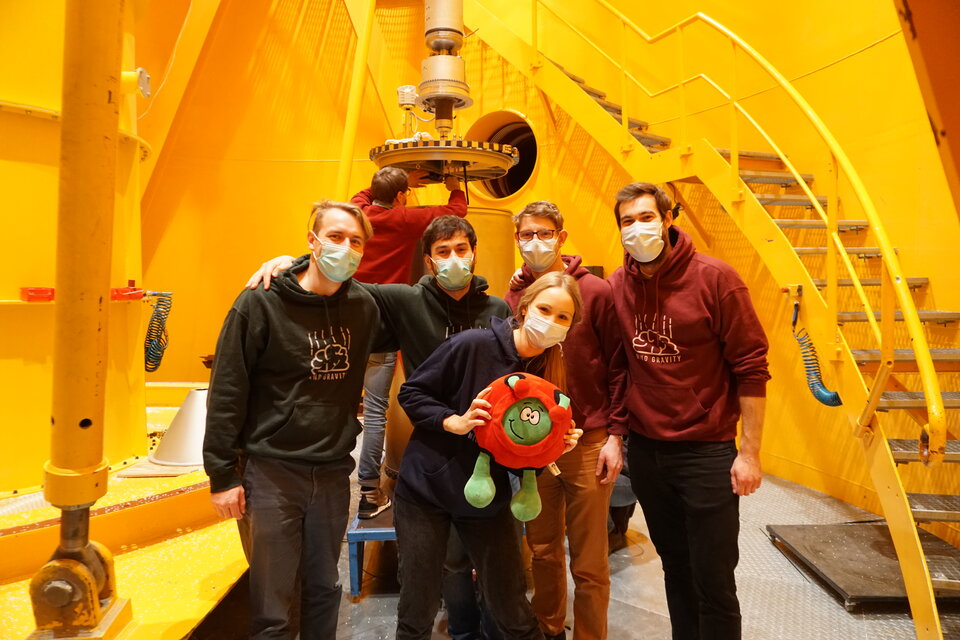
Team Mind Gravity is researching how gravity impacts cognitive performance in low gravity environments. Changes in neuronal activity is the root cause of various mental disorders and changed neuronal signalling may also lead to diminished performance of astronauts in space. Their research could shed some light on some of these fundamental processes which might prove to be of high importance for humankind’s exploration of space.
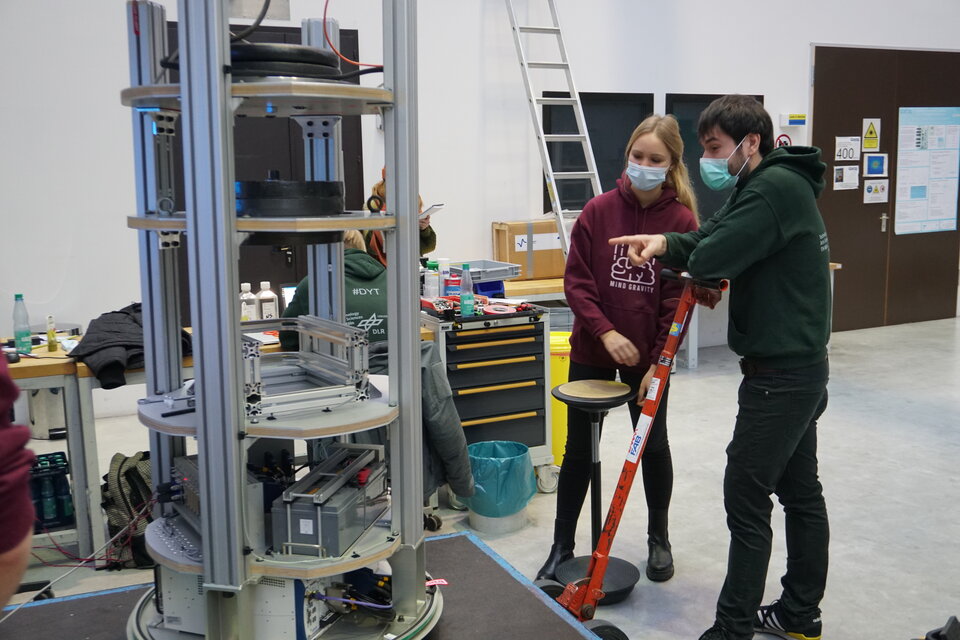
To tackle this the six students are using a multi-electrode array (MEA) chip to study the neural activity of isolated neuronal networks. MEAs feature the advantage of real-time electrophysiological recording and electrical stimulation of a complex and mature neuronal network in vitro, without the need for invasive patch clamp insertion into cells. “Making biological grade electronics is hard.” said the engineering student of the team. The team was surprised on how open and non-competitive the work environment was and was pleased by the collaboration with ESA and ZARM.
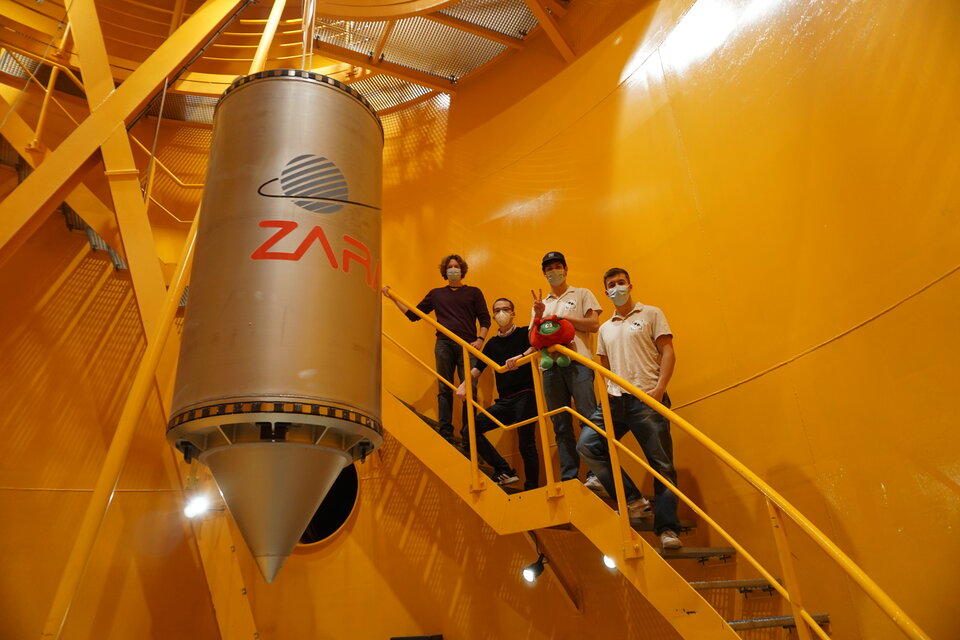
Both teams spent the best part of a year designing, building, and testing their setup with the close supervision of engineers and support staff from ZARM and ESA Academy. They also got assigned a mentor from the European Low Gravity Research Association (ELGRA) with experience in their field of study. – One year of work and preparations coming together in a few seconds of science. That is what science in the Drop Tower is all about!


